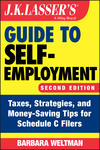Farm Tax Act Overrides Veto
Congress has overridden a presidential veto to enact the Food, Conservation, and Energy Act of 2008, creating $1.7 billion in tax incentives for farmers. Some key provisions that will help farmers and other taxpayers:
- A new optional self-employment tax calculation to enable farmers to earn credits for coverage under Social Security.
- Rapid depreciation for certain racehorses.
- Exemption for Conservation Reserve Program payments to retired or disabled farmers from self-employment tax. Also, the payments won't be used to reduce Social Security or disability payments.
- Two-year extension of the deduction for donations of conservation easements.
New limit
To prevent farms from being used as a tax shelter, the new law creates a limit on the use of farming losses. The new law restricts the amount of farm-related losses reported on Schedule F by self-employed farmers that can be used to offset nonfarm income to the greater of $300,000 or the average net farm income during the preceding five years.
Non-tax measures
One of the key provisions in the new law is a change in disaster assistance. The law creates a permanent disaster assistance trust fund to cover five assistance programs, including the Livestock Indemnity Program for livestock lost to extreme weather conditions. To be eligible for assistance after 2007, farmers must purchase crop insurance.
The law also creates "Aggie Bonds," which are tax-exempt bonds to help finance agricultural improvements. These bonds will provide low-interest loans for first-time farmers and ranchers.
What the act doesn't do
The President had vetoed the law because he believes it lacks fiscal discipline. It provides special-interest earmarks and subsidies at a time when net farm income is projected to increase by $28 billion this year.
Source: H.R. 2419
Tax preference items
Items that may subject a taxpayer to the alternative minimum tax (AMT).



